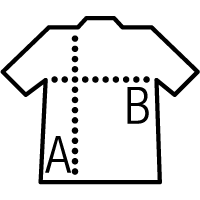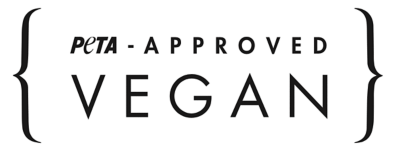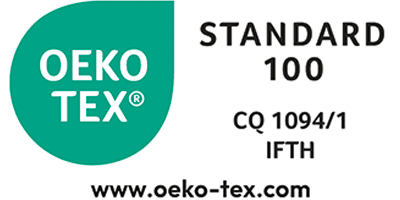Our product tracability
To trace our products through the production and distribution chain
A committed product
To guarantee you the best of our values

OEKO-TEX 1
STANDARD 100 by OEKO-TEX® stands for customer confidence and high product safety. STANDARD 100 label on a textile article means you can be certain that every component of this article, i.e. every thread, button and other accessories, has been tested for harmful substances and that the article therefore is harmless for human health. Independent institutes and laboratories that test the products take into account numerous regulated and non-regulated substances, which may be harmful to human health.

PETA
People for the Ethical Treatment of Animals (PETA) is the largest animal rights organization in the world, and PETA entities have more than 9 million members and supporters globally. PETA-Approved Vegan logo is highlighting clothing, accessories, furniture, and home decor items made of vegan alternatives to animal-derived materials, such as leather, fur, silk, feathers, and bone.
Which customisation technique for this product?
- Embroidery : This technique is generally used for personalisations that aim for a high-end finish. This technique is the most resistant to washing and use. The embroidery can be applied directly to the product or through embroidered patches. It can be done with thickness effects (with foam) or through patches that will then be affixed to the final product, allowing for variations in materials.
- Flex : It is the recommended marking technique for small and medium-sized series. There are several aspects: smooth, velvet, fluorescent, glitter, gold and silver. These are iron-on vinyls that are cut and glued by hot pressing. They are very well suited to a wide range of materials and substrates.
- Digital : The printing method that knows no limits: precision, colour effects, number of colours... This technique can be used to mark all types of product quantities and is particularly suitable for cotton-based materials.
- Screen Printing : The most widely used technique. It consists, by the stencil method, of depositing the ink directly on the product. There are as many screens and passages as there are colours in the motif to be reproduced and all colours can be achieved. This technique makes it possible to produce very large quantities. It allows the use of inks with various effects for very different renderings and is adapted to almost all textile supports. The marking of coloured substrates requires an opacifying undercoat called « background white ».
- Sublimation : A technique that is only used on predominantly polyester and white or even light-coloured substrates, sublimation is the method that offers perfect definition and brilliance of the printed colours. There is no limit to the number and arrangement of colours. The other great advantage of this technique is that there is no difference in feel between the marked and the blank areas.
- Transfert : The right technique for all materials. It is recommended for luggage, heavy garments, difficult to access surfaces. It consists of transferring the marking from a paper support to the garment by hot gluing. The marking by gluing brings rigidity to light supports at the level of the marking zone, nevertheless, the product keeps all its qualities of comfort.
Looks like you speak PLACEHOLDER,
would you like to visit this site in PLACEHOLDER?







 Best Deal
Best Deal Unisex
Unisex Dry Fit
Dry Fit

